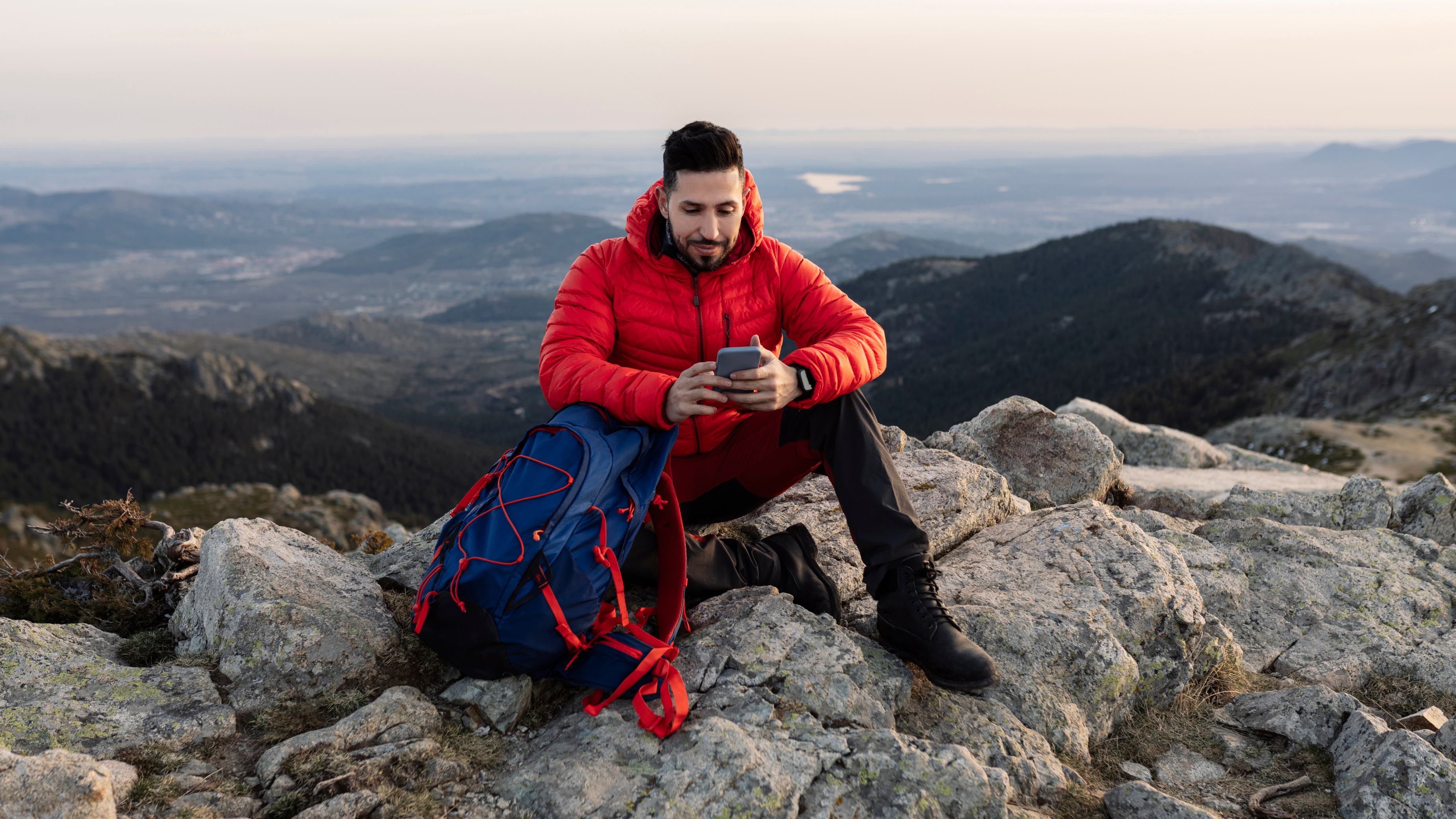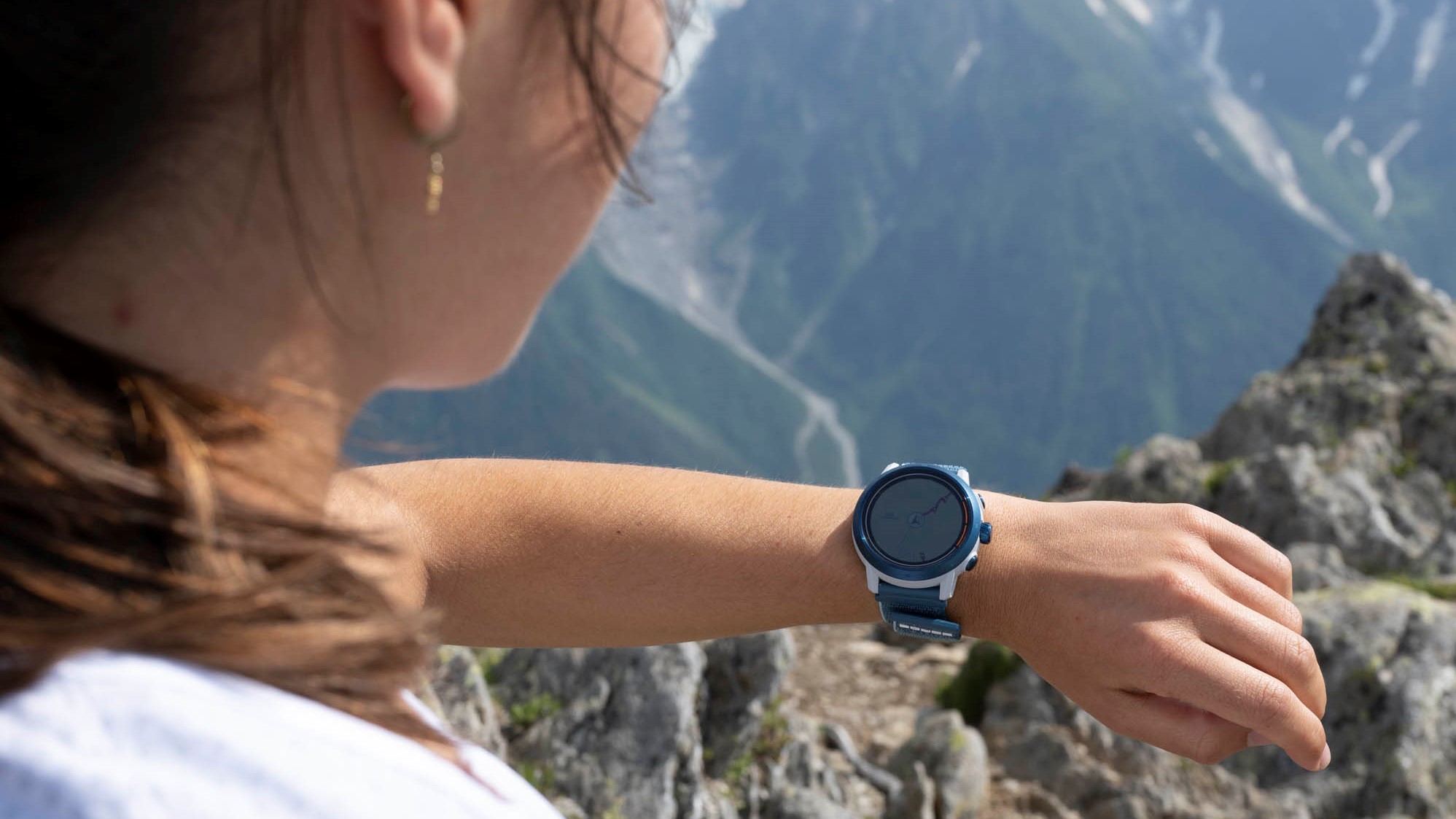
Even if you don’t own one, you’ll no doubt have heard all about the benefits of wearing a GPS watch by now. Whether it’s your co-workers discussing their sleep tracking round the water cooler or studies about how wearable technology can improve your physical activity, you’re bound to have heard that wearing a sports watch can be a great tool to track your progress on the trail or even at the gym, and help you get fitter and faster.
But what if you’re not a pro runner, or a cyclist? What if you’re not interested in metrics like pace, heart rate zone and recovery times because fitness is just a nice side effect of your favorite activity? Maybe your footwear of choice is in fact a pair of hiking boots and you prefer to move at a slower pace, soaking in the views and, perhaps most importantly, getting a bit of a digital detox. Do you really need a GPS watch for hiking?
As a lifelong hiker, I’ll cut straight to the point here – of course you don’t need a GPS watch for hiking. But you might want one. I finally started wearing a running watch about six months ago and, since it’s on my wrist and I’m a generally curious person, I’ve been using it to track my hikes as well as my runs, swim sessions and, thanks to a recent software update, even my yoga practices.
Unplugging and getting back to nature is undoubtedly one of the major selling points of hiking, and it may be the main reason you’re holding back on investing in a watch, and I get that. I never thought I’d be a person who wears a sports watch or even writes about the benefits of one, but I have to admit, there are some good arguments for wearing a GPS watch for hiking. Read on for some of the top benefits of wearing a GPS for hiking, and our recommendations for the best GPS watch for hikers.

Benefits of wearing a GPS watch for hiking
If you’re not in training for a marathon or some similar type of event, you obviously don’t need access to data like calories burned, training load and cadence (though I warn you, when it’s available, it’s tempting to look) but a GPS watch can have some good, interesting and practical benefits for your hikes. Here are my top three reasons for using a GPS watch on your hikes:
1. Saves phone battery
I don’t know about you, but for years before I got my watch, I still used GPS to track my hikes – I just did it briefly using a Garmin GPS device (before they came up with putting that technology in a watch) and then via an app on my phone. It worked well enough, except that it also sucked the life out of my phone battery. I lost track of how many times I pulled my phone out of my pocket on a mountain top to take photos and it instantly died, leaving me with no backup means of communication if I got stranded.
Luckily for me, I never sprained an ankle or got lost on those adventures, though I did have a few experiences where I nearly missed the last bus or train home and would have been in a sorry position indeed if I wasn’t carrying a portable solar charger. With a GPS watch, however, I can track my hike on my watch and save my phone battery for taking photos and calling mountain rescue (touches wood).

2. Real-time tracking
Disconnecting and spending time in nature is the main attraction of hiking for me, but I’d be lying if I said I don’t find the real-time tracking of each hike really useful, for practical reasons. If I’m following a route that I’ve only read about, and I know that I’m looking for a turnoff at the three-mile marker, it’s really handy to be able to see how far I’ve gone. I like knowing how many miles I have left till I reach the summit, which helps me to conserve energy on a tough hike and if I’m using public transportation to navigate to and from the trailhead, it’s helpful to know my current distance and overall pace so I can estimate when I need to turn around.
Having a device that tells you what altitude you’re at can also be helpful as well as interesting. Twice last year I was able to get myself out of a sticky situation – once when I was bushwhacking my way up a Munro in the fog and again when I got lost night hiking in the Alps – because my watch told me what elevation I was at, and I had a map to tell me what elevation I wanted to get to.
That said, there are plenty of hikes where I don’t look at my watch once until I get back to the trailhead, but it’s nice to know the data is there if I want it.

3. Log your adventures
In my opinion, probably the best reason to wear a GPS watch on your hikes is to have a record of your adventures. Yes, you could write everything down in your diary the old-fashioned way and keep track of details like how long a hike took you, but then you have to actually remember to do that when you get home and you’re really just thinking about running a hot bath.
Having the work done for you and stored electronically is clean and easy and if you’re anything like me, that record can be really useful. I frequently repeat hikes and rarely do I not check out my last visit to a trail to see how long it took me, which helps me determine factors like whether I have time for it and what time I need to leave to make sure I’m hiking in daylight.

4. Backup navigational aid
I put the word “backup” here because in truth, I don’t tend to use my watch to navigate, and I think relying on a map and compass in general is probably wiser. That said, downloading GPX maps is a function on many GPS watches that may be really appealing for you. Once you’ve added a map to your watch, you can use so-called breadcrumb technology and your watch will vibrate every time it wants you to take a turn, which could take the effort out of navigation.
A few months ago, I went on a group hike in the Lake District and the fellow who was guiding us had found the route online and was using his watch to navigate. I have to admit, it worked great.
Best GPS watch for hiking
What type of hiker you are will determine what type of GPS watch you need. We rated the Apple Watch Ultra as the best GPS watch for hiking overall, with its excellent mapping and emergency SOS siren in case you fall into difficulties (this function has saved the lives of several hikers recently, such as a Georgia hiker who suffered serious injuries after a fall on the trail).
However, if you’re just looking for something to store details of your day hikes, you’ll probably be happy with the Garmin Forerunner 265 which has really accurate GPS and a good battery life. If you’re thru-hiking, consider something more rugged like the Garmin Instinct 2X Solar which goes for 40 days without need charging, boasts a GPS which shines even in heavily forested areas and has a nifty flashlight.







